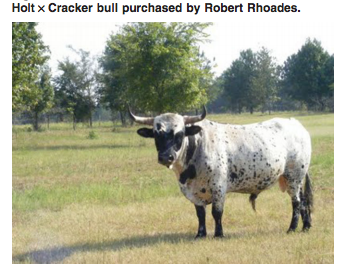It was just over four years ago that Prof. Robert Rhoades, pioneer of agricultural anthropology, passed away. He’s remembered this month in a Special Issue of the journal Culture, Agriculture, Food and Environment entitled Tending the Field.
Prof. Rhoades didn’t just invent the field of agricultural anthropology. Here’s an extract from one of the papers, Long in the Horn: An Agricultural Anthropology of Livestock Improvement, by Tad Brown, one of his students, on the conservation of the Pineywoods cattle landrace in the southern US:
Through my fieldwork, I also located one lone bull descending from a Holt cow in Alabama. It is the offspring of a cross with a Florida Cracker bull. After some deliberation, Rhoades bought that half-bred Holt bull, and he would jokingly threaten to start his own strain (see Figure 2). To Rhoades, a purebred landrace was a bit of a contradiction in terms. Just as cattlemen derived named-strains from the larger population of woods cattle, the division and recombination of family herds was the process by which people and cattle came to inhabit the southeastern pines. As such, the emphasis on genetics and purity of descent in livestock conservation efforts today can be somewhat averse to the social history from which the landrace breeds were derived (R. Rhoades, personal communication).
 And here’s that Fig. 2. Prof. Rhoades practiced what he preached. How many of us can say that?
And here’s that Fig. 2. Prof. Rhoades practiced what he preached. How many of us can say that?